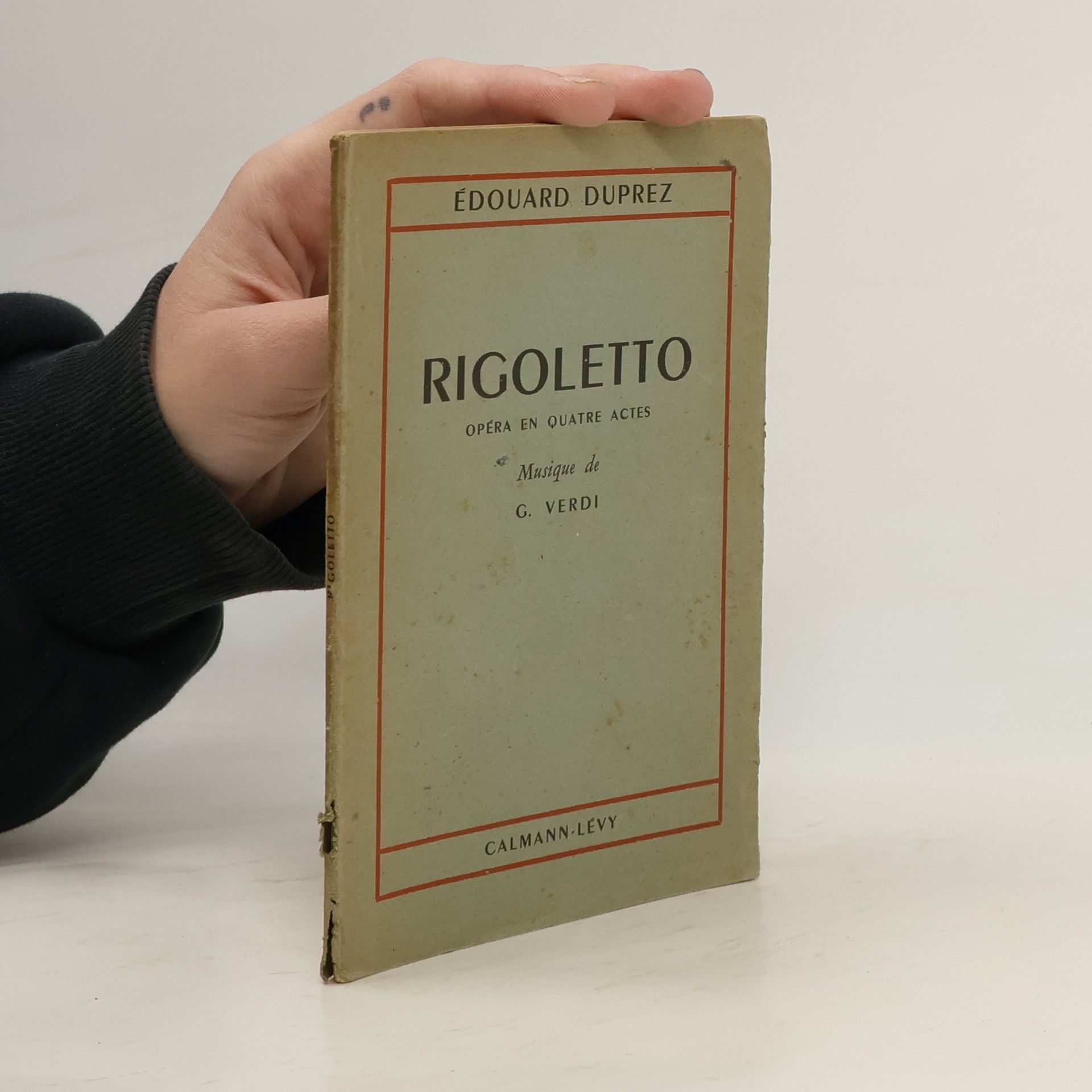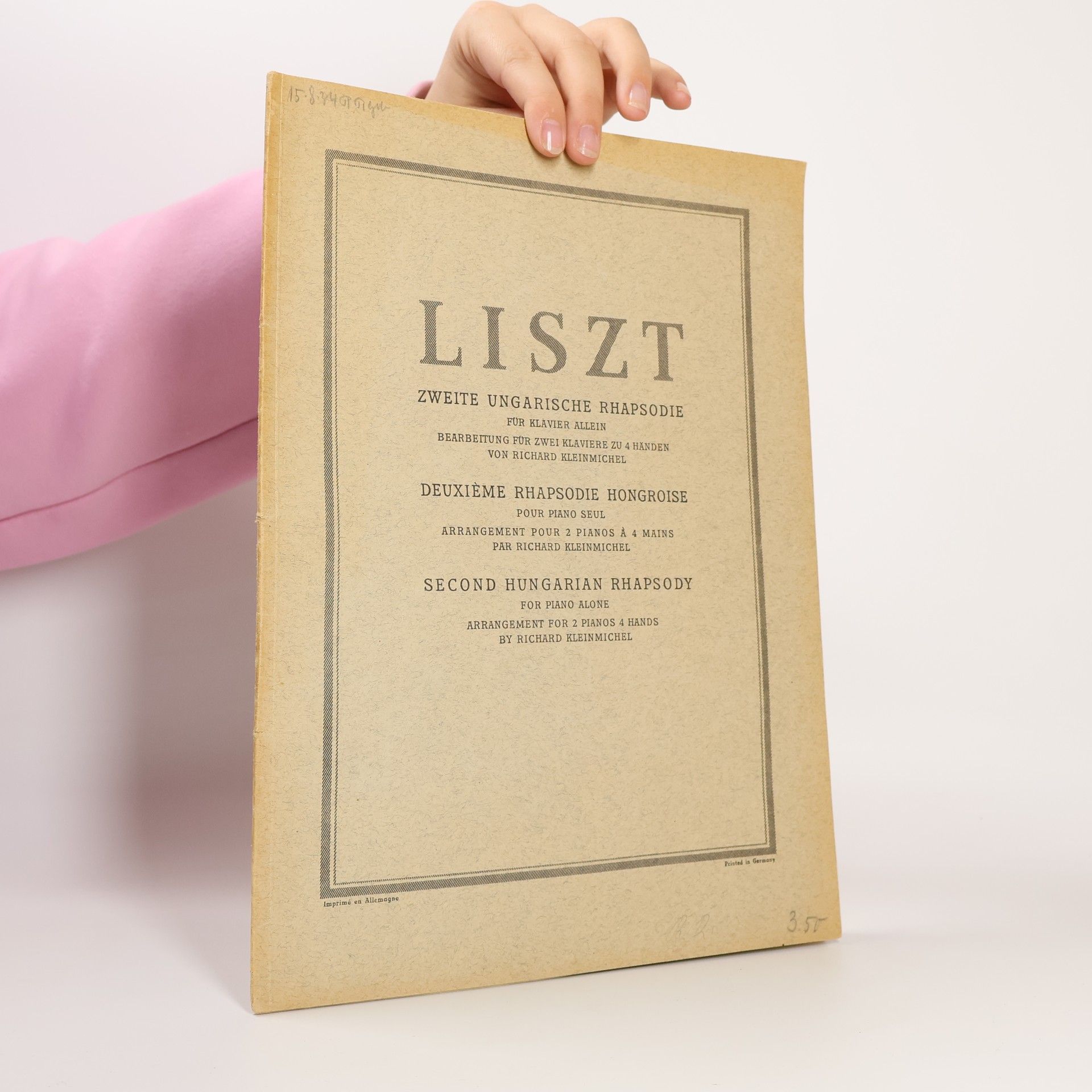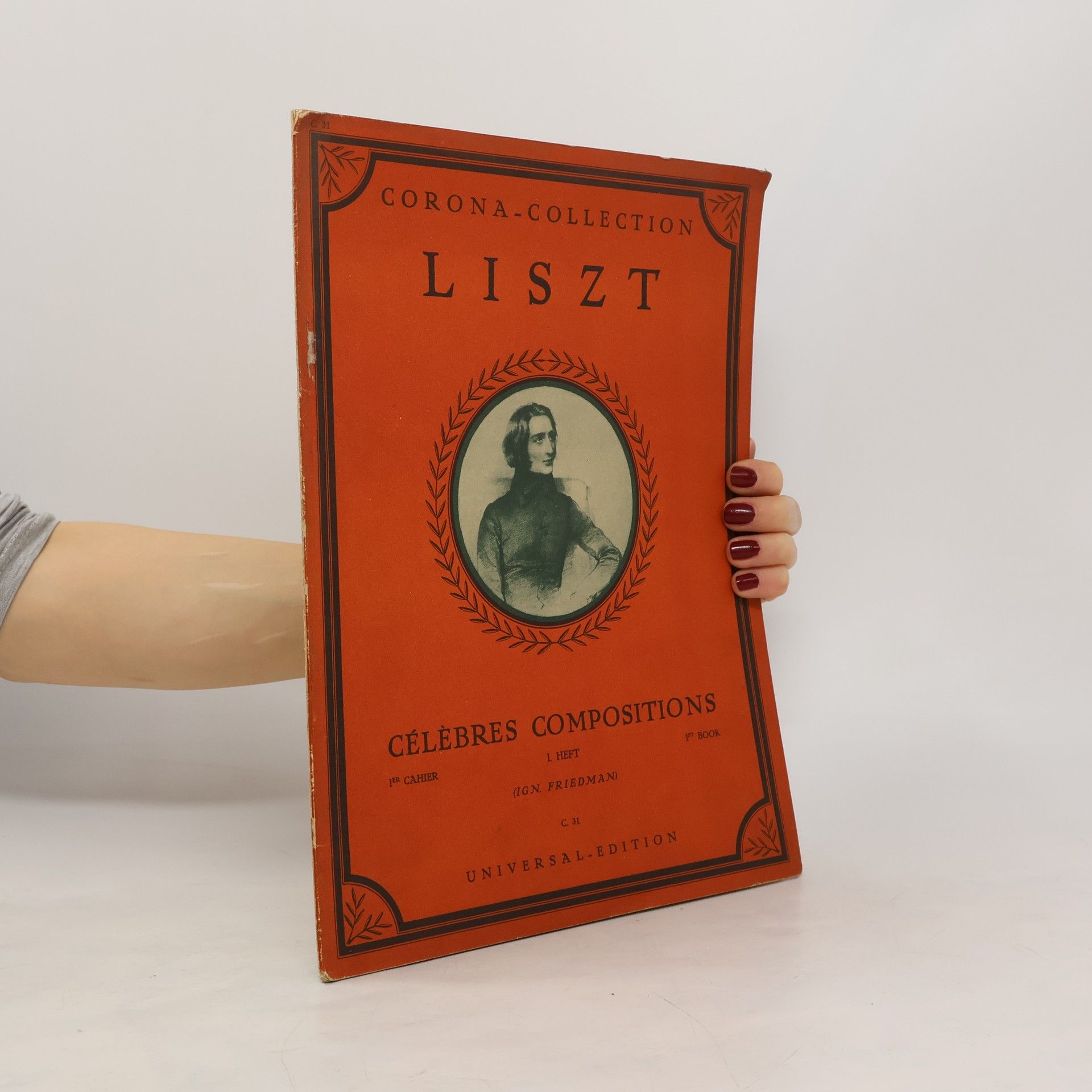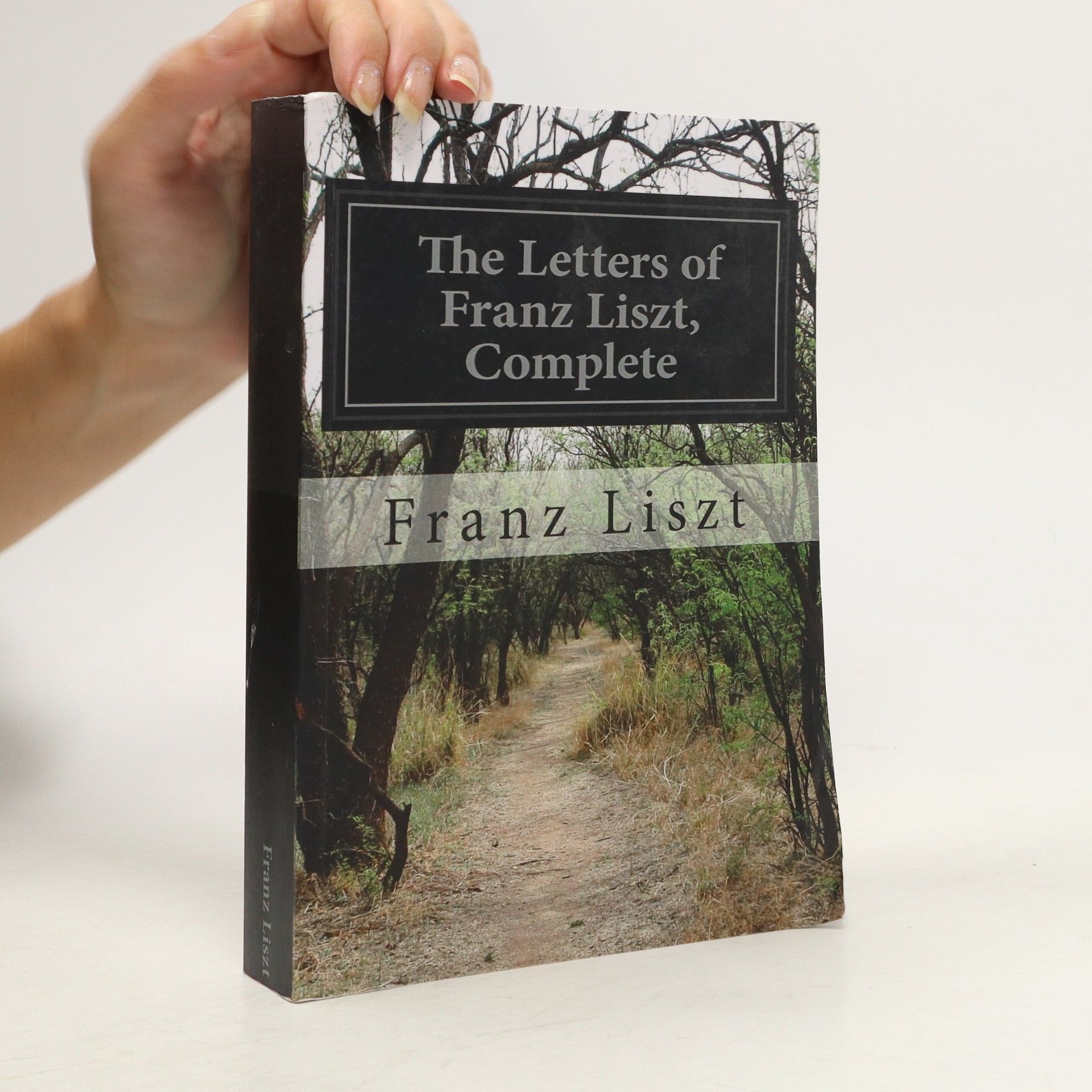Liszt Franz Livres
Franz Liszt fut un compositeur et pianiste virtuose hongrois, réputé pour sa maîtrise technique et son influence sur la musique du XIXe siècle. En tant que compositeur, il dirigea la « Nouvelle École Allemande », innovant dans la forme et l'harmonie musicales. L'œuvre de Liszt anticipa certaines tendances musicales du XXe siècle, et son impact a dépassé sa propre époque. Il fut également un enseignant et un mécène important.






Love Letters of Great Men
- 138pages
- 5 heures de lecture
When words of love do not come to you on their own, then read these letters. Complete, actual love letters of great men like Lord Byron, John Keats and Voltaire. Leaders like Henry VIII, George Washington, and Napoleon, who wrote to his beloved Josephine, "I awake consumed with thoughts of you..." Artists like van Gogh, Mozart, and Beethoven, who famously penned, "Though still in bed, my thoughts go out to you, my Immortal Beloved..." Dozens of intimate letters, coupled with over a score of period illustrations. Plus fascinating biographies, and insights into the couples' relationships-how they got there, the obstacles they faced, and what happened next. Poet warriors, from the first through the twentieth century, Ovid, Sir Walter Raleigh, Goethe, Nathaniel Hawthorne, Leo Tolstoy, Victor Hugo, Shelley, Robert Browning, Edgar Allen Poe, Mark Twain, Lewis Carroll, Pierre Curie, George Bernard Shaw, Jack London, Admiral Peary, Woodrow Wilson, and many more.
Great Song Transcriptions
- 72pages
- 3 heures de lecture
Life Of Chopin
- 114pages
- 4 heures de lecture
Franz Liszt's biographical work pays heartfelt tribute to Frédéric Chopin, highlighting their close friendship and shared experiences in the Romantic era. Liszt provides a unique perspective on Chopin's life, delving into his personality, relationships, and the cultural backdrop of his time. The narrative vividly captures the essence of Chopin's music and its influence on classical music, while also detailing his formative years in Poland and artistic journey in Paris. This biography transcends mere facts, offering an intimate homage from one musical genius to another.
The Letters of Franz Liszt, Complete
- 552pages
- 20 heures de lecture
This collection of literature attempts to compile many of the classic works that have stood the test of time and offer them at a reduced, affordable price, in an attractive volume so that everyone can enjoy them.
Franz Liszt and Agnes Street-Klindworth
- 452pages
- 16 heures de lecture
Franz Liszt's liaison with Agnes Street-Klindworth was a shadowy affair and one of the best-kept secrets of the Weimar years, according to Alan Walker, and La Mara's heavily censored 1894 edition of the Liszt-Agnes letters did little to illuminate this relationship. Here, in a new and expanded edition of those letters, Pauline Pocknell casts new light not only on Liszt himself, but on a woman who was the Master's mistress and confidante as well as a spy of considerable historical importance in her own right. This new critical edition contains all 160 extant letters in both English and French, transcribed from the most reliable sources and carefully annotated by a scholar of increasing reputation. Also included are-biographical information about Agnes herself; historical and critical prefaces; detailed notes for each letter; linking text between letters; analytical tables of the correspondence; an extensive bibliography and an index. Some 40 rare illustrations accompany the letters themselves and help readers visualize Liszt's and Agnes's circumstances and the amorous and diplomatic encounters they documented for posterity.

